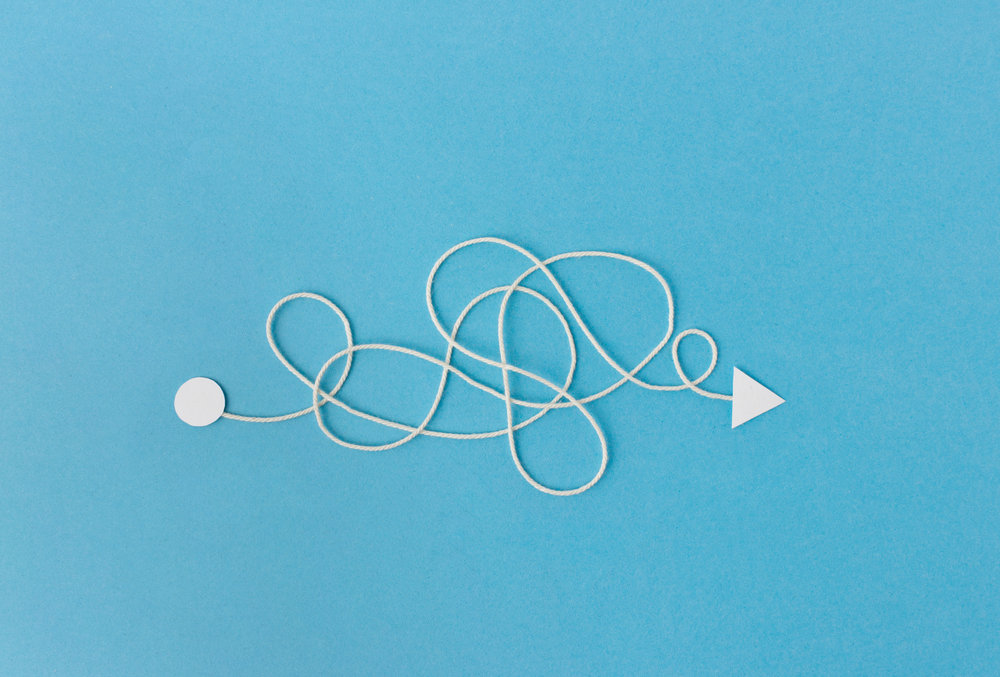Interruption overload is the new workplace affliction.
In the industrial age, people used to be able to interrupt you at work only by phoning or walking into your office.
Today, information workers are faced with ever-increasing online distractions.
Interruptions are everywhere, and personal productivity is suffering.
51.5% of people are interrupted frequently throughout the day” according to a RescueTime survey.
“For half the people we spoke to, interruptions were a constant threat to their focus. With an additional 46.5% saying they get interrupted at least a few times a day,” writes Jory MacKay
Switching attention can deplete your cognitive resources that can be devoted to focusing on any given task.
Even the mere expectation of an email or a message can distract you from committing fully to a task.
“The profusion of communications channels is definitely harmful to productivity because it leads to more interruptions,” says Jakob Nielsen,
People who get distracted from a task struggle to get back to it and regain focus. And they also waste time trying to recover from interruptions.
“For people doing knowledge work — the most highly paid employees — every time you are interrupted it takes 5–15 minutes to fully recapture your train of thought and get back to being completely immersed in your main task,” saysNielsen.
Some interruption like notifications can be addictive if you don’t actively don’t something about them.
Answering emails can also be addictive. You feel you have accomplished something but in the long-term, you can losing focus from high-value work.
Emails and instant messages contribute to productivity but without management, they distract us from the real work.
“Interruptions can eat up 28 billion wasted hours a year, at a loss of almost $1 trillion to the U.S. economy, explains Jonathan Spira, author of Overload! How Too Much Information Is Hazardous To Your Organization.
Make your “unavailable” time known to your colleagues
Share your calendar with your colleagues to make it easier for them to know when you occupied with important tasks.
It’s a simple but effective way to limit interruptions.
Let people know when you are available, and when you are not.
Make it clear that during your “unavailable time”, they should only interrupt you if they have to.
Or better still, you and your co-workers can agree on a signal, a symbol, or anything that makes it clear to everyone that you are unavailable.
If you are a manager and handle urgent issues as and when they arise, this may not be easy to implement, especially when your goal is to get people talking and giving you feedback.
Stop interrupting yourself
You are probably interrupting yourself more than you know.
Browser tabs, clutter on your desk, and notifications are the biggest distractions when you want to get stuff done.
When working on your important stuff, close all tabs that have no relevance to the work in progress or disconnect completely.
If interruptions consistently rob you of time and energy, build a system to monitor your work behaviour, and find out which distractions are highly disruptive.
Turn off the automatic alert on e-mail and check it manually, say, three times a day. Use a timer or the Pomodoro technique to single task successfully.
Instead of cranking through a lot of tasks and multi-tasking, learn to focus on important tasks and single-task.
Use the “two-minute rule”
Deal immediately with all interruptions that take two minutes or less.
Two minutes is short enough to prevent loss of engagement when you have to get back to your task quickly.
If email takes up a lot of your day, write shorter emails.
The simple change of limiting yourself to 4–5 sentences per email will make a big difference.
Take the number of words you think your email should be, cut that number in half, and that’s what your word count should be.
Use a trigger
Headphone is a great trigger that can help you assume “focused mode”.
It can easily send the right signal to people that you are not available.
You can listen to calm tracks that can help you stay in the “flow”.
You could even have an album or playlist that gets you in the mood to work and listen to that as part of your routine.
Research supports listening to music at work. It’s been found that listening to music can increase accuracy and speed, with 9 out of 10 workers performing better when music is playing.
Sometimes, you don’t even have to play music, and you’ll still be left alone.
Start an interrupters log
This is a simple record of your interruptions in the course of a day.
There is a growing body of research that shows that self-monitoring massively reduces the time spent on low-value work and interruptions.
Use smart monitoring to determine the types of interruptions you experience daily. This means monitoring the activity and the nature of the interruption — those related to your current task and unrelated ones, and whether they are important or urgent.
Mark down the person interrupting you, and the date and time it occurs.
Try it for at least a week, and analyse the information.
If you can identify the source of your interruptions, you will be able to put strategies in place to minimize them.
Closing thoughts
Everyday interruptions can be a key barrier to managing your time effectively.
In our digital age, attention management is the new focus.
Interruptions will get worse if you don’t do something about them.
Start every day with an interruption plan and stick to it. The key to controlling them is to know what they are and to plan for them in your daily schedule.
Cut off distractions. Own your attention.
Originally published on Medium.com
Follow us here and subscribe here for all the latest news on how you can keep Thriving.
Stay up to date or catch-up on all our podcasts with Arianna Huffington here.


